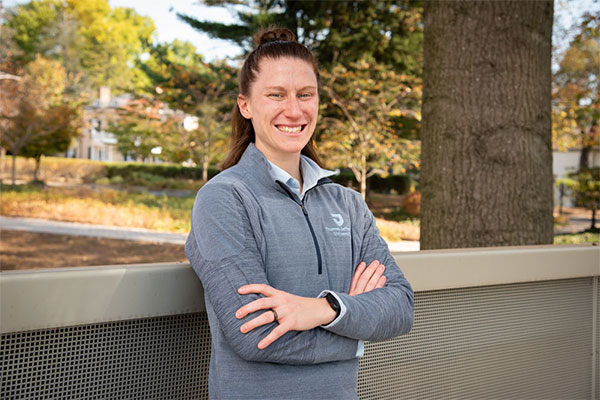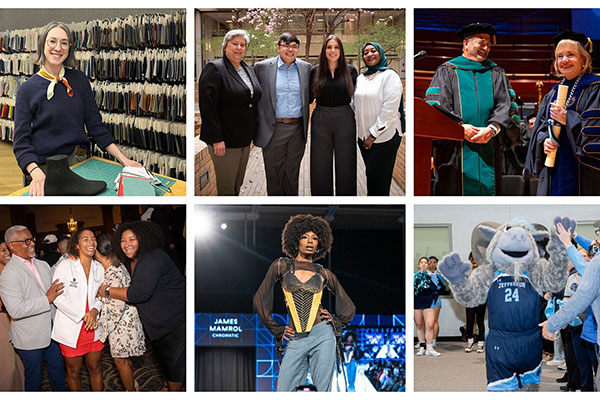
Both Institutions and Students Need Life-Long Learning to Prepare for the Future of Work
As academic leaders, we must prepare graduates to compete in this quickly evolving economy.
The Brookings Institution’s new study on artificial intelligence’s impact on employment should send a chill down the spine of every higher education leader: “What jobs are affected by AI? Better-paid, better-educated workers face the most exposure.” Worse, it projects that workers with bachelor’s degrees will be seven times more exposed to displacement by AI than those with only high school diplomas. Envisioning the resulting employment landscape resulting from this societal and economic disruption, the authors suggest that, “What’s coming may not resemble what we have been experiencing or expect to experience.”
This is an understatement. What has become clear from numerous recent studies is that society will soon undergo a digitally driven economic shift as a result of AI. The integration of these intelligent machines will not occur over centuries, like the changes triggering the industrial revolution; rather, they will occur over the coming two decades. The practical effects of this integration will cause disruption across many industries, around the world. Previous studies have projected that by 2030, developments in automation, AI and machine learning may force 32 percent of the American workforce to find new jobs, and that 30 percent of global work hours will be done by people—and machines—in jobs that do not yet exist.
We must abandon our antiquated beliefs and understandings of education.
As academic leaders, we have an obligation to prepare our graduates to compete in this quickly evolving economy. To do so, we must abandon our antiquated beliefs and understandings of education. This is a mandatory first step toward curricular changes necessary to give our graduates the skills to succeed in dynamic workplaces built around digital systems and online interactions. At Thomas Jefferson University, we prepare graduates for the jobs of the future by following three principles:
First: We must accept that in any role in which a machine can do better than a human, a machine will be employed to do so. Knowing this, we are laser-focused on helping students refine the abilities that people possess. Creativity and intuition, global perspective and ethical reflection, flexibility and adaptability, communication and collaboration skills, as well as empathy and social awareness. At Jefferson, students must demonstrate measurable mastery of these skills as a requirement of graduation. AI has infinite potential for gathering knowledge but little potential for wisdom or other human capacities.
Second: A previous study found, “The ability to gain new knowledge will be more valuable than the knowledge itself.” To that end, we foster students’ capacities for life-long, self-directed learning and professional adaptation. By training our students to educate themselves, they are prepared to embrace new technologies, environments and professional challenges that will be present throughout their careers.
Third: Digital fluency is essential to participating in a digitally based economy and work environment. Digital fluency is the capacity to understand the fundamental “thinking” that drives the machines we use. It’s an awareness of how they work and what work they are capable of doing, rather than the knowledge of how to use new software or hardware. Our graduates understand the principles and processes underpinning algorithmic, computational and applied analytic and visual systems.
By training our students to educate themselves, they are prepared to embrace new technologies, environments and professional challenges that will be present throughout their careers.
These three sets of capacities are woven into required and elective curricula that bring together active and collaborative learning across disciplines to solve real-world problems while infusing instruction with the liberal arts. By leveraging their abilities to work in tandem with AI and other nascent technologies, we ensure our students can move smoothly into new industries, fields and roles that utilize their human skills.
Creating an educational experience that empowers graduates for success in a changing economic landscape is a never-ending process that requires the continuous fine-tuning of academic programs. It’s a life-long learning process for the institution that parallels the learning our graduates must be ready to do throughout their careers. It’s not easy, but it’s essential for universities committed to delivering high-value educational programs that will enable graduates to thrive throughout the 21st century and beyond.
Dr. Mark L. Tykocinski is provost and executive vice president for academic affairs at Thomas Jefferson University and The Anthony F. and Gertrude M. DePalma Dean of Sidney Kimmel Medical College.



